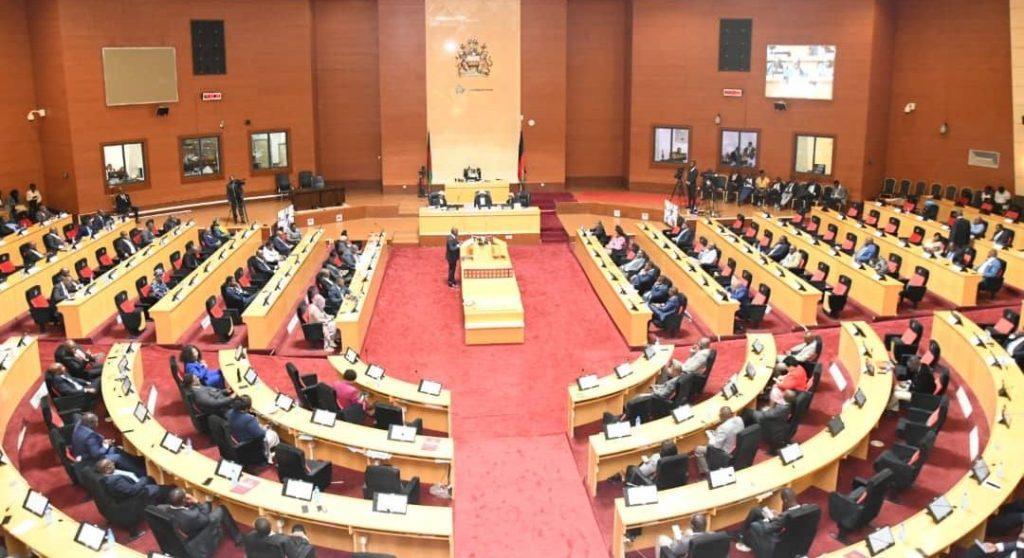Africa-Press – Malawi. There is growing friction in Malawi’s multiparty democracy — this time over who deserves taxpayer-funded political financing. The calls being made are clear: smaller parties want the Political Parties Act (PPA) amended so that State funding isn’t limited only to political parties that secure at least 10 percent of the national vote.
Under the current setup, only two parties — the DPP and MCP — qualify for State funding based on the September 2025 parliamentary results. The law, anchored in Section 40(2) of the Constitution and reinforced by Section 21 of the Political Parties Act (2018), was designed to ensure that only parties with broad national representation receive government funding to operate effectively.
However, nine other registered parties that won seats but fell below the 10 percent threshold — including UTM, UDF, PP, AFORD, PDP, Freedom Party, and NDP — are now crying foul. They argue that the law, though well-intentioned, is out of touch with Malawi’s evolving political reality where independents and smaller parties increasingly dominate the fragmented political landscape.
What the Calls Are Really About
At its core, these calls are not just about “fairness” — they are about political survival. Running a political party in Malawi is costly, and without public funding, smaller parties struggle to maintain offices, pay staff, or mobilize supporters between elections.
Leaders like Khumbo Kachali (Freedom Party) and Linda Limbe (AFORD) are effectively saying: “We may be small, but we are legitimate voices with elected representation — why should our parties starve while the big two feast?”
Their argument is strengthened by the fact that independent MPs now outnumber some established parties, exposing a legal blind spot. The law was crafted before independents became such a force — and now the funding framework no longer reflects the composition of Parliament.
Why It Matters: Democracy vs. Practicality
This issue cuts straight to the heart of Malawi’s democratic inclusivity.
Proponents of reform — like political scientist Ernest Thindwa — argue that the current law unfairly sidelines minority voices, thereby undermining pluralism. He suggests that funding should instead be proportional to parliamentary representation, so that every party with at least one seat can sustain its operations and engage meaningfully in the democratic process.
However, others — such as analyst Wonderful Mkhutche — warn that diluting the threshold could turn politics into a money-grab, encouraging opportunists to register parties purely to access public funds. His view reflects a fear of political fragmentation and abuse of State resources in a country already burdened by over 60 registered political parties, many of which exist only on paper.
Meanwhile, the Malawi Law Society’s Francis M’mame offers a cautious middle ground: expanding funding could promote inclusivity, but it must be done with strict accountability rules. Without transparency, such an amendment could create more corruption than democracy.
The Political Undertone
It’s no coincidence that these calls are gaining momentum now. With DPP and MCP dominating the new Parliament, smaller parties are anxious about being financially and politically suffocated. Their lobbying for reform is essentially a fight for oxygen in a political system where power and money concentrate around the biggest players.
Interestingly, former president Lazarus Chakwera last year vetoed a similar amendment, warning that it violated the Constitution. His rejection signaled a presidential preference for political consolidation rather than fragmentation. But as the political environment becomes more pluralistic — and as independent MPs and small parties prove their relevance — the pressure to revisit this policy will likely grow.
The Bigger Picture
This debate is not merely about funding; it’s about the future shape of Malawi’s democracy. Should State resources be used to strengthen all democratic voices — or should they reward only those who demonstrate broad national appeal?
If the 10 percent rule remains untouched, smaller parties risk extinction, and Parliament risks becoming a two-party chamber. But if the threshold is lowered, Malawi could see an explosion of briefcase parties born only to chase funding.
Either way, the story exposes an uncomfortable truth: Malawi’s political financing framework is outdated for a democracy that has matured into a complex, multi-layered system with independents, coalitions, and regional blocs.
Until that framework is revisited, the cry for a fairer political funding formula will only grow louder — and more divisive.
For More News And Analysis About Malawi Follow Africa-Press






